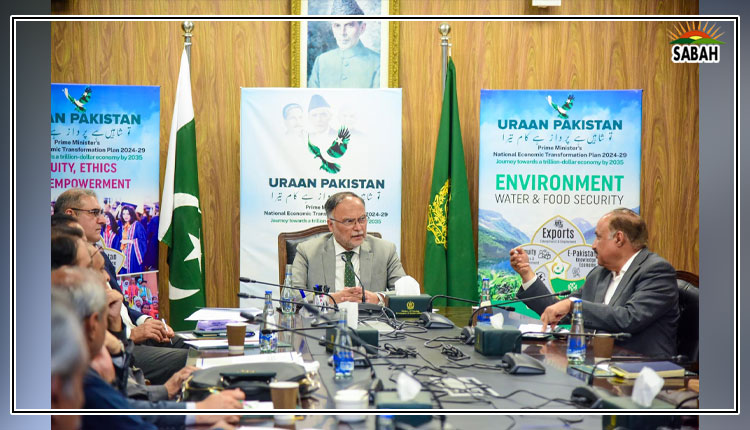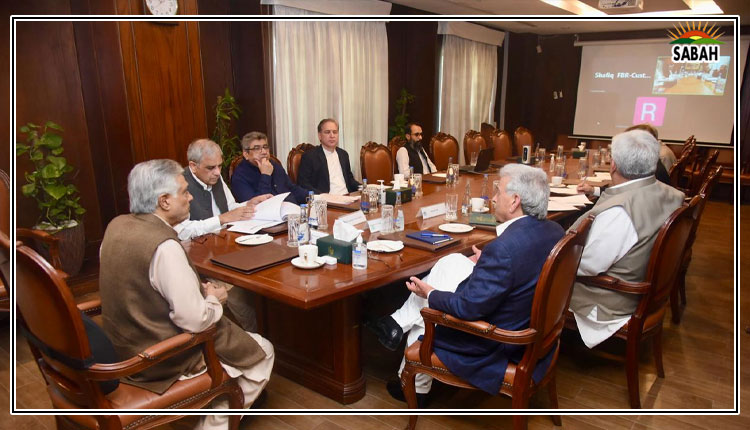Leveraging COP28…Aisha Khan
AS we gear up for the 28th Conference of Parties (COP) in December 2023, it is important to remember that laggard momentum is no longer an option. It is time to take stock not just of emission reduction commitments but of the whole range of actions needed to ward off a gathering climate crisis.
The COP presidency plays an important role in navigating this complex and often contentious process. This is a time for responding with urgency and tabling concrete, ambitious propositions for transformative adjustments. The UAE can build on the momentum generated at the Petersberg Dialogue to articulate a forward-looking focus on key areas and building alliances, including appointing ministerial pairs to lead on consultations.
The UAE can steer the process to harvest key outcomes from partners and strengthen its own climate offer. The G7 Leaders Summit (May 19-21) and the Financing Pact Summit (June 23) are opportunities to leverage ministerial signals for setting expectations from specific actors (Canada, the UK with the support of France) especially on the phase-out of all fossil fuels and coal by 2030. Similarly, efforts need to be made to ensure that leaders from G7, at the Summit for a New Global Financial Pact, show willingness to lead coalitions driving international financial reform, and draw up a joint roadmap for reform implementation and overarching objectives, includingprivate finance.
This is an opportunity to ramp up pressure on new international climate commitments to contribute to a Loss and Damage (L&D) fund, by mobilising commitments for making a path-breaking pledge for the Green Climate Funds replenishment. The COP28 president-designate, Dr Sultan Al-Jaber has already expressed his concern on the delay in the delivery of $100 billion pledged in 2009 and its diminished value after 14 years. The estimated new adaptation cost of $1 trillion annually will not be an easy commitment to secure.
The list of essential actions is long.
Leading by example, the UAE could pioneer innovative sources to secure reliable financial flows for adaptation and loss and damage by making the first pledge to the future L&D fund. This will help initiate a responsive move by other multilateral actors. As host, the UAE can also convene discussions on defining indicators to set trigger points for disbursing L&D finance, particularly in the form of drought and water stress, to enable effective measurement and response in terms of new funding.
Climate summits put greater responsibility on the host country to ratchet up its climate offer to set the stage for negotiations. The UAEs Nationally Determined Contributions set a target equivalent to emissions of 13 per cent above its 2015 levels in 2030. However, the level of ambition required for a 1.5 degrees Celsius compatible emissions pathway is a 36-39pc reduction. There is a clear opportunity here for the UAE to leverage its diplomatic influence through credible actions and urge all countries to comply with the UNFCCC executive secretarys call,to revisit and strengthen their 2030 targets, aligning them with the Paris Agreement temperature goal.
Building on the COP theme of a zero carbon and resilient world and partnerships to promote progress, the UAE could leverage its influence over the oil and gas sector to accelerate the global energy transition towards renewable energy. It is also a diplomatic opportunity for capitalising on the political energy around reform of the financial system to broker MDBs support for mobilising guarantees and regional platforms to support the energy transition.
COP28 needs to broker a policy and finance package on food and land use. Governments need to reconfirm commitments to deliver nature-based finance under the Kunming-Montreal Global Biodiversity Framework and agree to work towards scaling-up private sector contributions by expanding payments for ecosystem services.
The time is right for triggering debate on the MDBs financial models and aligning them with public good, advancing debt relief of bilateral, multilateral and privately held debt to free significant fiscal space for investments in the transformation, and making better use of their toolbox, especially guarantees and expansion of lending capacity.
The list of essential actions is long; the outcome will once again fall short of expectation. But given the magnitude of the threat, the UAE must push parties to develop, deploy and disseminate technologies and adopt policies to achieve deep decarbonisation in the energy sector. This should be accompanied by a strong demand for increased public and private investments to mobilise quantity and quality of finance for climate action, including tripling MDB/DFI finance from $60bn to $180bn in the next five years.
The writer is chief executive of the Civil Society Coalition for Climate Change.
aisha@csccc.org.pk
Courtesy Dawn, May 16th, 2023












